In this episode Emily is joined by the wonderful Lucy Mills, an early years practitioner who recently qualified just a few weeks before recording. Together they explore what it's like to enter the world of early years, the process trainees and apprentices go through in order to qualify and some of the key things Lucy has picked up along the way!
What a better way to kick off this early years podcast than going back to the very beginning of our professional journey with an in-depth looking into what it's like joining our industry and starting out as a trainee in 2023.
Emily Macfarlane: Hello everybody and welcome to the Early Years Network podcast. That is The Little Minds Big Ideas podcast. The podcast where we are talking all things early years from inside and outside our fantastic industry. And today I am joined by Lucy Mills, who is a newly qualified early years educator, who is gonna give us a little bit of an insight into the current process of becoming qualified in early years.
Lucy Mills: Hello, I'm Lucy. I'm 20 years old. I have a beautiful horse called Badger, who I basically spend all my time with. Anytime I'm not at work, I'm at my horse or I'm walking my two dogs always outside, always in the countryside, in the fresh air. I love spending time with family as well. A lot of my family are really kind of outdoorsy people.
Yeah, so we spend a lot of our time outdoors. We love going on like long walks, finding little hidden gems, little hidden beaches everywhere. Yeah, it's great fun. Nice.
Emily Macfarlane: First of all, thank you for joining me on my podcast.
Lucy Mills: You’re very welcome!
Emily Macfarlane: I think becoming qualified in this industry is such a big topic for everyone in terms of staff recruitment and things, and I just wanna dive into a little bit more of that.
So, to start us off, I think, what is it that drove you towards early years in general? Now,
Lucy Mills: I won't lie to you. This was a bit of a leap of faith for me. So, I've always really enjoyed looking after my goddaughter. She is eight years old now. But, you know, looking after her from when she was young, I really, really enjoyed that process and kind of seeing her grow up.
Yeah. But I had no idea whether I was going to enjoy it when it's like, not somebody that I already know. It's very different looking
Emily Macfarlane: after other people's
Lucy Mills: children, isn't it? And I was thinking, oh, there's gonna be a lot more children than just one child to look after. Yes. Um, so it was a bit relief of faith.
But to be fair, it's the best decision I ever made. And I, I wouldn't go back, wouldn't go back to what I did before. So I guess
Emily Macfarlane: it was kind of like that. Understanding of being around a child that kind of pushed you into wanting to explore the industry a little bit more.
Lucy Mills: Yeah. And kind of seeing her like grow up and learning new things.
And I'd take her to the horse with me and would be outside all the time. Yeah. Just little things like that that I think is so rewarding and it's so, it just just makes me heart melt. Yeah. Makes my heart melt. Anyway, . Um, but yeah, took that jump and here I am and I'm absolutely loving it. That's the main thing,
Emily Macfarlane: isn't it?
It is. So in terms of the qualification itself, how do you feel that that level three content has helped you with your daily practice now that you've been doing it for Over two years? Two years? Yeah. No, yeah. Two years. Yeah, two years over two years
Lucy Mills: now. Yeah, over two years now. It really helps with like planning activities and, you know, giving these children different things to do and how to help them learn.
They've got to learn about the world. They live in this world. They've got to know about it. Yeah. And it's just been helpful to kind of have all these ideas available to me that I can then go, [00:03:00] actually, I think my children might quite like to do that, so let's try it. Let's have a go. And like the theorist side of it, you know, looking at all the theories that were about child led play and it just, it really helps to then be able to bring it into our practice and actually see what they can do for themselves.
I think we get so caught up in like what we're trying to teach them, that we're getting them ready for school, that we actually forget they are just children. Yeah. And we've got to let them explore. We've got to let them play and that is one of the biggest things that I've taken from it. Looking at all the different theories that have said that and thinking actually they are children.
Let's just let them play, have some fun, and then we'll teach them along the way.
Emily Macfarlane: Yeah, I think that's something that comes from being in the industry for a while, isn't it? That actually . , you understand what learning through play really is and your role as the adult. Yeah, definitely. Definitely learning through play, because like you said, we'll teach them along the way, but really we'll provide them with the activities that will teach themselves.
Yeah. They'll learn so much. No, definitely. I think that's uch a massive part of daily practice, especially now in that learning through play is such a big, big thing. Definitely. That we're all focusing on. Same. And
Lucy Mills: it's helps you to think of like why we are doing it. Why are we doing this for these children?
Why are we planning all these activities? You know, what's actually the theory behind it? Because we all get caught up in our daily routine. Sometimes it feels like we're running around all day. Mm-hmm. . And we don't stop to kind of think, why have I just done that? What impact has that had on these children?
Yes. And actually being able to look back at your coursework and looking at what you're writing down and you actually think, well, I did that the other day and that had that impact. So you actually like your practice helps your coursework and then your coursework helps your practice. So it is a win-win really.
Do you think that
Emily Macfarlane: doing this qualification in practice has been beneficial? 'cause being an apprentice isn't the only route to get this qualification.
Lucy Mills: I. I think it's been really helpful to be in practice because there's so many things that came up on the course. Actually, if I hadn't have already done it, I wouldn't really know what I was talking about.
Yeah. Um, I'm, I like learning through doing things, so the fact that I was doing it every day, like different forms and things like that, I was doing that on a day-to-day basis, so then I knew that I could happily write about it for an assignment or a piece of coursework because I'd already done it.
Whereas if it was kind of just college based, I wouldn't have done that. So I wouldn't have actually known. What it's like in the early years setting to have to do that.
Emily Macfarlane: Yeah. I think I did my qualification as an apprentice years and years ago now , but I really would've struggled, I think learning it in a classroom definitely.
Because I think definitely it's really difficult to teach early. Not that it is wrong, it's not the wrong way to do it, but like you say, I learned through doing as well. And I think that if I'd have tried to learn everything I knew from a classroom. And then be thrown into a setting thinking, oh yeah, I know all of this.
And the reality of it, I might have been a bit like, oh shit, what is, what is going on? Yeah, because, but if you learn it as you do it, like you say, if you are, if you are that, it's, that's your learning style, it's quite easy to pick up as you go through.
Lucy Mills: Yeah. Yeah. And I also think every child's different.
So all that theory that you do, Okay. Yeah, it's for the, for the group of children. But actually on a day-to-day, you've got so many different children and they respond to different things with fantastic different personalities. Exactly. You've got to try so many different things. Yeah. To find what works for them.
Whereas if you're just writing about children in general, you're not actually getting that kind of interaction with them. And I think that really helps when you're writing. But of course that because you can actually refer back to a child that you've. Help reach a milestone or, yeah. You know, an activity you've planned for a specific child for a reason, you've then got that knowledge behind you to then put into your work.
Yeah,
Emily Macfarlane: no, definitely. I think moving on to like what we've said to being an apprentice and doing it through a provider, obviously you had your company as well, but with the provider, how did you find the support given? From them. So not your company. We'll, we'll go onto that, but your pro, the provider that actually provided the course for you, I feel
Lucy Mills: like they have a lot of people signed up to do like these level two and level three courses for childcare, and I just found that you didn't get that full on support that you really needed.
I think because they had so many people and they were always kind of running around doing visits, going out to nurseries. . Um, and like they were emailing so many different people a day on different questions, different modules, and I just feel like there wasn't a huge amount of support there. Yeah. I feel like because so many people are doing it now, there needs to be something else there to give us that support to help with our work.
Yeah. 'cause I just found that if I had a question, I had to wait kind of a couple of days to get a reply because they're so, so busy and it's not, it's not their fault. No. But, Yeah, I do think there could have been a bit more support from the provider. I
Emily Macfarlane: think that knowing my position in that now, signing people up to the course, probably in the last 12 months I've signed up over 15 people.
Oh wow. And like across, across the board. Yeah. And I think that doing different courses, whether that's level two, level three, level five, whatever that could be, and . From me alone, putting 15 extra people onto the one person that we use from a specific provider. Yeah, definitely. That is, it's a lot of pressure.
Huge. So it is a lot of pressure for them, and I think they can actually only provide so much support because of their workload as well and the pressure's on them. So that kind of leads into your company support what? How do you feel that your company supported you? This is a bit of a bias question. I know it is, but do you feel that having support from both sides was beneficial?
Lucy Mills: My company were absolutely incredible. Through my qualification. I had a training manager who helped me with like any questions I got stuck on, I could drop her a message, drop her email, and she'd always go back to me. And we also had like a training building. So like after work, if I wanted to stop and do a couple of hours of training, yeah, I could go up there, I could chill, do my coursework, and then, you know, they were there in case I needed any help.
Whereas with the provider, obviously I had to kind of wait to get the answers. Yeah. So it's really nice to kind of have someone on hand that I could go to if I was struggling or I really struggled with kind of managing my time and my company were able to help me with that. You know, they gave me different strategies I could use.
So, yeah, the support from them was really, really useful.
Emily Macfarlane: I think it's important to have a relationship when you are going through a qualification because I'm still studying, I'm doing a different qualification now, and my assessor's fantastic, but that's because I get that contact with her. And I think with the providers of early years apprenticeships now, I dunno if it's about like a, the backlash, sorry, of Covid and things like that.
I just think that contact time is a little bit, Lost. Yeah, definitely. And like we said, it is not the fault of the provider. I think it's more, yeah, their workload is picked up so much.
Lucy Mills: I mean, they do, they do come out and do like the observations that they do. Yeah. But I find that when they come out or you don't actually get chance to talk to 'em about anything else you're doing, like they just come out for that observation.
That's all they get time for because they've just got so much to do. So like you have your video calls and you know, your team meetings, but. It's not quite the same as kind of having somebody there with you. Yeah. So that's why like having my company training manager there with me was really helpful because I could carry on as normal as if I was just doing it at home.
Yeah. And then if I had a question I could just go, oh, can you just help me with this? And yeah. You know, it was, it was, it was easy to do then.
Emily Macfarlane: What do you think then could have made the process a little bit easier? Is there anything that you think, I mean, we've kind of touched on a little bit more time with the provider and your assessor and things, but again, everyone in the industry at the moment is stretched.
Like there's nothing we can we can do as an industry in that sense. So what do you think might have made the process a little bit easier?
Lucy Mills: I think what would've helped me would've been more exam prep. So coming up to, yeah, coming up to my exams. I had a mock exam for the, um, knowledge test, which was great.
That was really good. That was from my provider. Um, and to be fair, that was marked really quickly and sent back to me straight away. So couldn't have really asked for more from that. From them. Yeah. Um, but it was more the professional discussion. Yeah. Because we get so caught up in doing things and we're doing it every day,
Emily Macfarlane: all day.
Sorry, just to stop you. For everyone listening, can you explain the exam process at the end of a qualification? So what is it that you, because I didn't have to do that when I did my qualification. I see. I feel like it's something that's come in. So what is the, it's called the endpoint assessment, isn't it?
Yeah. So what is that process? Yeah,
Lucy Mills: so you've got your endpoint assessment, so you have your knowledge test, and that's basically a multiple choice exam. Mm-hmm. . Um, it's all done online. So our assessor came out to us, um, and sat with me in the room, just us two. While I kind ofgot on and did it, and then it got marched there and then, so I had to wait about 10, 15 minutes just to get the results.
So that was really nice because at least I kind of knew how I'd done straight away on that one. Yeah. Um, and then you then have a professional discussion, which is, it's an hour and a half video call with an external examiner. Um, it does sound really intense, but actually once you get into it, it's not that bad.
Yeah. Like the initial thought of it for me was absolutely terrifying. . I was, yeah. It was, it was quite terrifying to start with the thought of it, but actually once you get into it, you're just talking about what you do on a day-to-day basis. Yeah. Um, and you know, they're actually questions about like, activities and things like that.
It is just about what you do. Yeah. Um, but I just think that we get so caught up in what we do every day, all day that we don't actually talk about it. Mm-hmm. . So I think actually having more practice for that discussion would really help. Yeah. 'cause if you're so used to talking about it to your colleagues or like even your family and friends, even though even if they don't know what you're on about , you can still talk to them about, about it.
Yeah. You know, it may, it makes no difference to them. And just vocalizing it and like getting it out there so that when it comes to your exam, you are comfortable to just
Emily Macfarlane: talk. Yeah. You can just naturally talk about what you do. Yeah. I think that's where reflective practice is so important. I know that even no longer in daily practice, but in the kind of early years role that I'm in now, I always have to reflect on how I've done different things.
And I think that it's not something that we do enough in settings. No,
Lucy Mills: definitely not. I think we should do more of that. Definitely. Because you never, you can't learn a unless you look at what might not have actually gone quite so well. Yeah. So I always kind of think at the end of every day I say to myself, right, what have I done good today?
What could I maybe change for tomorrow? Yeah. Because you, there's, you are never gonna stop learning, you know, in early years. It's always going to be something to learn, something new to do. And just other things to try out. Yeah. So you just, you just have to reflect on what you've done and there's nothing wrong with holding your hands up and saying, actually could have done that a bit differently, at least, you know, for
Emily Macfarlane: next time.
Yeah, no, a hundred percent. I think reflective practice, that's another conversation for another day. But I think it's so important in, in the industry that we're in, because we we're teaching children that it's okay to make mistakes and. To understand different feelings and emotions and I think if we can understand that as adults doing what we're doing, yeah, it's really important.
So do you feel that going through this qualification process has made you more confident in your practice?
Lucy Mills: I do feel like I'm now more confident to kind of help other people with their practice as well. Yeah. So like especially after my exam, like the professional discussion. I'm actually now more confident to come into work and say, I'm doing this for this reason.
Yeah. And actually being able to help the others that may not maybe new to the industry, you know, help them think, well, why has she just done that? Mm-hmm. At least I can then say, oh, this is why I've done this and this is why I've done that. It may work. Yeah. It may not, you know, we try it. Yeah. Um, and the confidence in like helping the children and bringing new things into the nursery and like setting up new activities that we've maybe never tried before.
Yeah. Just knowing all that I know now, like having the knowledge behind me. I know that I've always got a why as to what? As to why I'm doing something. Yeah. So I know that if I do something within the day and someone says to me, oh, what was that about? I know that I can go, well, actually this was my why and this is what it's done and this is how it's helped the children.
So yeah, definitely a lot more confident. Now, obviously a
Emily Macfarlane: big part of the qualification is parent partnership. Yes, definitely before the qualification, I think. And going through that training process, you're kind of expected to have relationships with parents. Do you feel more confident now with parents and questions that might come up as well?
Lucy Mills: I think definitely since kind of doing the coursework on the parent partnership and why it's so important, I definitely feel like I can actually talk to them a bit more, kind of get to know them a bit more and get to know what the children do in their home lives. Mm-hmm. , because actually it really helps us within the setting because at least we know what they've done at home.
You know, if they're struggling with anything or if they've done something particularly well, we can then talk about that in the nursery. Yeah. And then the children feel so much more at home as well. So yeah, like doing the, doing all the coursework that I did for that has definitely made me con more confident to talk to them.
Good.
Emily Macfarlane: I think it is, like you said, it's such an important part of the nursery life and relationship that you have. Yeah, definitely. So, so we kind of touched on this a little bit, but. How do you feel that you now support colleagues or other people joining the industry or people who have been in the industry for a long time going through different processes, but then those people going through a qualification, how do you feel you support them?
Lucy Mills: I feel like I've been really good at kind of helping knit people that are going through the qualification. Mm-hmm. . So there's a couple of girls that started kind of four or five months after me, so they're . They're kind of getting to the point where they're getting ready for their exams. Yeah. Um, and it's just everything I learned from doing those exams and kind of what I'd missed out on, I can now provide for them.
And, you know, we've, we've all got each other's backs in this industry. You have to, you know, we spend all day, every day together. We're all amazing at what we do. Um, so it's just kind of helping them, like be more confident in their role. You know, if there's something they want to try, but they're not sure about it, just letting them know.
Go ahead and try it. Yeah. You just never know. Yeah. And helping them, like with their coursework and things, I'm more than happy to sit with them and go, actually, this is what I did. You know? If you want to have a look at it, take anything from it, you're more than welcome to just, sometimes you just get a bit stuck and sometimes you just need a help in hand, and I know I did, so I'm going to give that for other people.
Yeah, allow them to have that chance to have that bit of extra help to get them through.
Emily Macfarlane: Yeah. I think it's really important to bounce off people who have recently done . Similar or gone through it. 'cause you can actually, you can
Lucy Mills: relate to each other. Yeah. You can relate to how you're feeling. You can relate to how you manage your time.
And obviously everyone works a bit differently so everyone learns differently, so. Mm-hmm. , obviously you do take that into account, but something you have done they may not have even thought of trying. Yeah, no, a hundred percent. So it's just sharing all your ideas and kind of bouncing off one another and then that way we'll get to where we want to be.
Yeah. And we can all help the children.
Emily Macfarlane: It's building those professional. Relationships up, isn't it? Networking with people that are doing the same thing as you or similar. And
Lucy Mills: even with like your managers, like there may be some things that they go, oh, I'm not really sure about this, but if you've already tried something along those lines, it's worked.
You can then say, well we tried this, have you tried? That sort of thing. So it is not just kind of the people . I want to say below you, but then they're not below you. No. Yeah, yeah. The people that are kind of getting their qualifications. Yeah. That's now . It is not just them. You can help your whole team.
Yeah, and we
Emily Macfarlane: have to remember that normally management aren't newly qualified, so the knowledge. Like remembering all those theories and the reasons, and like you said, the why Yeah. Isn't always at the front of their mind. They know it all and it can come back. But if you've just done a qualification, you say, oh, well I've just learned this and I've just gone through this.
So this could, could be the reason. Yeah,
Lucy Mills: definitely. And you know, there's always new research around as well. Mm-hmm. . So you know, if we've looked at something that's relatively new that they might not know of Yeah. We can share it. And then everyone gains because the children gain. Yeah. And that at the end of the day,
Emily Macfarlane: and that's what we're here for.
Yeah. They're the people that we want to. Inspire and grow and learn. So,
Lucy Mills: and we want them to know that they can help each other out. Mm-hmm. We want them to see us helping each other out and being kind to each other and you know, giving each other that kind of . Boost of positivity that we all need from time to time.
Yeah. And then they'll see it and they'll, they'll replicate it between themselves. So actually it helps them as well. Yeah. Their development.
Emily Macfarlane: So that knowledge from your qualification has helped you to understand that kind of Yeah. Learning for the children as well.
Lucy Mills: Yeah, it definitely is. Really helped me to understand that everything we do, they pick up on.
They're like little sponges. Exactly. So whatever we do, whatever we say to each other, how we talk to each other, you know, they pick up on that. Mm-hmm. , so, you know, we have to help each other
Emily Macfarlane: out. It's like when a child comes in, And says a swear word and you have to talk to the parent and they're like, we don't swear.
Well, we don't swear here. They've heard it somewhere. Yeah, we're not dying. But they do pick
Lucy Mills: up on, yeah, they pick up on everything. They definitely do. And you know, they pick up on vibes, you know. You know, if the vibes aren't great, they pick up on that. Mm-hmm. and then if you are stressed, they're stressed.
Yeah. So, you know, if you can share all your ideas together and help each other through whatever that person's going through, then . Everyone gains from that. Yeah, definitely. Your colleagues gain, your children gain, you know, you gain yourself as well. Exactly. It's a happy, positive environment. Yeah. The children are learning as they should.
You know it. It's a
Emily Macfarlane: win-win, really. Yeah, definitely. So what would you say that you, that are some of the things, sorry, that you love about your current role? What? What
Lucy Mills: is your current role? I am currently an earliest practitioner. Yeah. I am also third in charge In our room. Our room is split up into kind of two different groups, so kind of if say if one manager of one room is off, I'll then step up and kind of go into their position.
Yeah. And it's just really nice because then I get to see a mixture of all the children between the two groups. Yeah. So I am based in one of the groups, but then if the other person isn't there, I can then go and see the other children. Yeah. And these are children that are going to move up into my group eventually.
Yeah. So, you know, I get to know them in those earlier stages. I get to know the rest of the team. Mm-hmm. . And it's just really nice to see everyone's ideas as well. One of my favorite things is walking into a room and all those children are smiling at you and they're so happy to see you. Yeah. But like when you've been on annual, say if you've been on annual leave for a week, you walk in the next week and they're all like, miss Lucy's back.
Yeah. You know, it's, it just makes my heart melt. It really, really does, and that is one of my favorite things. Knowing that no matter what, I can come to work and these children are so happy, just evening me. Mm-hmm. And I'm so happy to see them, you know? Yeah. They're like my little work family. .
Emily Macfarlane: No, definitely.
I think more of my favorite things about walking into any setting is there's always someone who's happy to see you. Doesn't matter what room you walk into, there's always somebody who wants to give you a hug or tell you something or, yeah. And it is just so heartwarming that these children are confident enough to.
Want to share that with you. Yeah. And you've built those relationships up and it's so
Lucy Mills: nice as well. Like seeing the children that kind of started out with me when I first started out as an earliest practitioner, they're now in preschool getting ready to go to school. Yeah. And I'll walk in that preschool room and they all come over to say hello.
They all come over to tell me about their day and, you know, hearing some of them doing things that they couldn't achieve in the cheese room. Yeah. It's so, it's just so rewarding. Yeah. Just seeing those little happy faces just makes my day good. . That's the main
Emily Macfarlane: thing, isn't it? So in terms of your future goals within the industry, where do you see yourself going?
What is your goal? I
Lucy Mills: really enjoy outdoor learning. That is one big thing for me. I love being outdoors and doing different things outdoors, and I would like to learn about kind of different activities I can do in that environment. Yeah. So more about learning about the world, learning about the animals around them.
Mm-hmm. . And the wildlife. So things like forest school that really interest me. Yeah. Um, but also as well, working more with send children. Yeah. So I have had experience with a couple of Send children and I have really enjoyed kind of putting all their strategies into play, getting them the support they need and actually seeing them reach those milestones that not everybody ever thought they could.
Yeah. You know, just, that's one of my favorite things. Seeing them be able to do that and if I can give them more help then. , that's, that's job satisfaction enough for me. That is . Yeah.
Emily Macfarlane: I think one of my favorite things within the industry is the job satisfaction that comes. Yeah. From it. I think seeing, seeing children learn and achieve for me is, there's nothing quite like it.
There's nothing quite like sharing with a parent an amazing moment. Or when a parent shares something with you or a child shares something with you. I just don't think there's anything that gets No, there's nothing that comes close to it. No,
Lucy Mills: definitely not. And you know, the pride you feel that you can go, that child has just done something that we never thought they would do.
Yeah. Like this early. Yeah. And you know, you are always so proud of your children that are under your care. Mm-hmm. . Yeah. And I also think like combining outdoor landing and send children, because I know for myself, being outside for me, I am so much calmer and so much more chilled than if I'm in a building.
Yeah. So you know, these children that have their like sensory issues and things like that and struggle to regulate themselves, being outdoors is actually probably the best thing for them. Mm-hmm. definitely, you know, giving them that opportunity to be out there. Freedom. And obviously some children don't always get to be outside at home either.
No. So they're giving them that opportunity when they come to your setting, you know, it really helps them.
Emily Macfarlane: Yeah, no, definitely. So, This is always something that I see online a lot and I think as an industry we like to have a good moan. To be honest. I think that I saw a Facebook post the other day that said, oh, what's one thing you'd warn people about coming into early years?
I. I hated reading it because I thought, hang on a minute. We are such a fantastic industry. We make such a difference to the future generations, and I think that, yeah, definitely. Why would we warn. Why would you want to wor someone away from it? Yeah. It's a stressful job. It's hard work, don't get me wrong.
It is not glamorous.
Lucy Mills: It's, it's not the easiest job in the world. No. But then no job that you love is No. It's always going to be something with any job you go into that you know you're not really a fan of. No. But you just put up with it because that's what you want to do. And if this is what you want to do, and if this is what you love, then it's so worth putting up with the days that are Yeah.
There are days that are harder than others. Yeah. But you just move
Emily Macfarlane: on. Yeah, so my question is not what would you warn people about, but what is the one thing that you would tell people about the wonders of early years?
Lucy Mills: My biggest thing is you can walk in that building and no matter what, those children are smiling because you are there.
Yeah. You know, that you matter to those children and that those children couldn't be doing everything they're doing without you. Yeah. You know, you are such a big part of their lives without, without even realizing it. You, you just are. Yeah. You know, some of them come to us all day, every day, like they see, they see us all the time.
Mm-hmm. You know, we are such a big part of their lives and you know, that you can walk in that door, everything else. You don't even need to think about because you know someone's gonna make you smile. Some child's gonna do something that's gonna make you laugh, gonna make you chuckle, make you smile. Yeah.
And it's just the, the feeling in your heart is just, I just love it.
Emily Macfarlane: Yeah. No, I think I completely agree. I think one of the amazing things about the early years industry and what we do is the impact you make. Definitely. And that you probably don't realize when you are in the setting, in that. The The how much, how much you become part of people's families and part of people's lives.
Because children will talk about you at home. They'll want to share things with you. Yeah.
Lucy Mills: When you get messages from parents going, oh, they said this about you today, and they said that about you today. Yeah. And you just think actually, I'm making an impact on this child. Mm-hmm. , you know, these children are our future, you know, doctrines.
Yeah. Vets. Everything. A little bit scary
Emily Macfarlane: to think about. I'm dying. a little bit
Lucy Mills: scary. Yes. You know, these are the children that are gonna be looking after us eventually. Yeah. Yeah. You know, when we get old, they're gonna be the ones running the world. Yeah. Deciding where we go. Exactly. So we kind of owe it to them as well.
Yeah. To give them that really good start in life. Yeah. And help them become the best version that they can. Yeah, no,
Emily Macfarlane: I completely agree. So are you glad that you took that dive and you'd made that decision to come into early years and become qualified? Are you glad you became an apprentice and did this kind of journey that you
Lucy Mills: went on?
I really, a hundred percent am so happy that I made that decision. Yeah. You know, didn't really a hundred percent know what I wanted to do. I went, gonna try it. Yeah. You don't know unless you tries. No. So we tried it and, you know, I never ever thought I would be in a job where I'm so confident and so happy to be [at work Yeah.
As I am now. And, you know, nothing beats that feeling. I would never, never ever go away from this. Now, you know, I found, I found my thing. I found my place. Yeah. And I, I love doing it. It's something I love. I don't think of it as work because it's just something that I love doing. Yeah.
Emily Macfarlane: And the . The knowledge you got from the qualification and being an apprentice has kind of given you that next boosting confidence as well.
Lucy Mills: Yeah, and I've, I've always struggled with studying. Studying is not my strong point at all. Like when I was me at school and I did my exams, oh, it was, yeah, it was not good. I. Actually, I've proven to myself that I can do this. Yeah. And you know, I've done it in something I love. So actually it wasn't, and
Emily Macfarlane: whilst holding down a full-time
Lucy Mills: job.
Yeah. You know, that's something I never, ever thought I would be able to do. Yeah. So the fact I'm sat here now talking to you that I'm a qualified early years practitioner is, it's
Emily Macfarlane: amazing. Yeah. No, I completely agree. And I think you should be really proud that you did it. Like it's, yeah. It's when you tell people, oh yeah, I work full-time and I'm studying.
Some people look at you and go, so look. But actually he is really hard. It's a lot. And I think that being, I don't like the term apprentice always because I feel like you think of someone who is 16, 17 and starting out afresh, and I think that's not a bad thing. But I was 17 when I did my qualifications, so I was an apprentice.
Yeah. I was doing . The paint washing and I was doing their things, and with the company I did my qualification with were fantastic and I'm really glad I did it. But I was a young girl in this industry starting out. Whereas we have people now who are in their forties in the thirties. Yeah. Training. And I always call them trainees because I think there's a stigma around being an apprentice, and I don't think it's right, but I do think that
It is. Something that's really pushed now is learning through work. So being an apprentice, holding down a full-time job, a lot of people like yourself have got other commitments. You've got a horse, you are up at five o'clock every morning, like there's not . It's not something that you, it's not like being at school.
It's something, it's a commitment. It's huge.
Lucy Mills: Yeah, it really is. And it, it is, I won't lie, it is full on, especially when, like you said, I've got a horse, you know, I've got horse, I've got dogs. I've always got something else to be doing. But because I enjoy it so much and I enjoy the researching part of it, I love looking at new things that I can put into practice that actually, that part of the qualification wasn't that hard.
It was just doing it, trying to sit down and actually have time to do it. Yeah, like I'd do it, like I'd sit on my lunch break sometimes and just look up a few things. Then, you know, I didn't have my laptop on me, so I couldn't type anything up. Yeah. So then I'd get home and you know, I'd get home and I've done the horse and I've walk the dogs and then I still had to sit there and do it.
So it is full on. But as long as you learn to manage your time. Yeah. And you know, if you've got the support around you, you're absolutely fine.
Emily Macfarlane: Yeah. And you
Lucy Mills: can do it. You can indeed. So that kind
Emily Macfarlane: of wraps up our apprentice trainee learning on the job. Chat for today's podcast.
Lucy Mills: It's lovely. It's been lovely to be here,
Emily Macfarlane: but I do have one final question that I am asking every single podcast guest.
Okay. What was your favorite childhood memory as we talk all things early years here. Oh
Lucy Mills: wow. Oh, that's a hard one actually. It is. It's a lot of years to choose from, so it is a lot of years. I would probably say one of my favorite childhood childhood memories is I used to go to my granny's house every Sunday religiously.
You know, we'd go every single Sunday we'd go for games and Nice, you know, when I was younger, like we'd do like drawing and different things like that. Look at old photographs of like bam neighbor things to do, and it was just, . It was just the best days because I knew that I was with my family. I was somewhere safe.
I was well looked after and I was having the best time of my life. I was looking at all these old pictures of my family thinking They used to look so different, , and at that age, you look at those photos and you go, is that really who I think it is? Yeah. Yeah, it was lovely. That is probably one of the best childhood memories, spending those Sundays with family.
Do you think
Emily Macfarlane: that's kind of contributed to you being so family orientated now?
Lucy Mills: Definitely, yeah. I've always enjoyed being with my family and you know, having those quality, having that quality time with them as a young child, you know, I've grown up and I'm like, actually, I always want my family around.
Mm-hmm. , you know, Yeah. Really important to you. Yeah. It's really, really important. And I think that's also why I love early years because I know I had some really good memories in my early years. Yeah. You know, if I, if I can help provide that for a child, then that's amazing. You've won. I haven't indeed done it.
Emily Macfarlane: So that was our episode with Lucy On The Little Minds at Big Ideas Podcast all about. Learning on the job and qualify, qualifying, sorry, in early years. So that is it from us this week. We hope you have enjoyed our chinwag all about learning and developing in early years, something that we are very passionate about at the early years network.
So it's really nice to talk to someone who's going through . Or has been through, sorry, that process as well. And, um,
Lucy Mills: we hope that you will join us
Emily Macfarlane: on the next one. Thank you for listening and
Lucy Mills: we will see you soon. Bye bye.
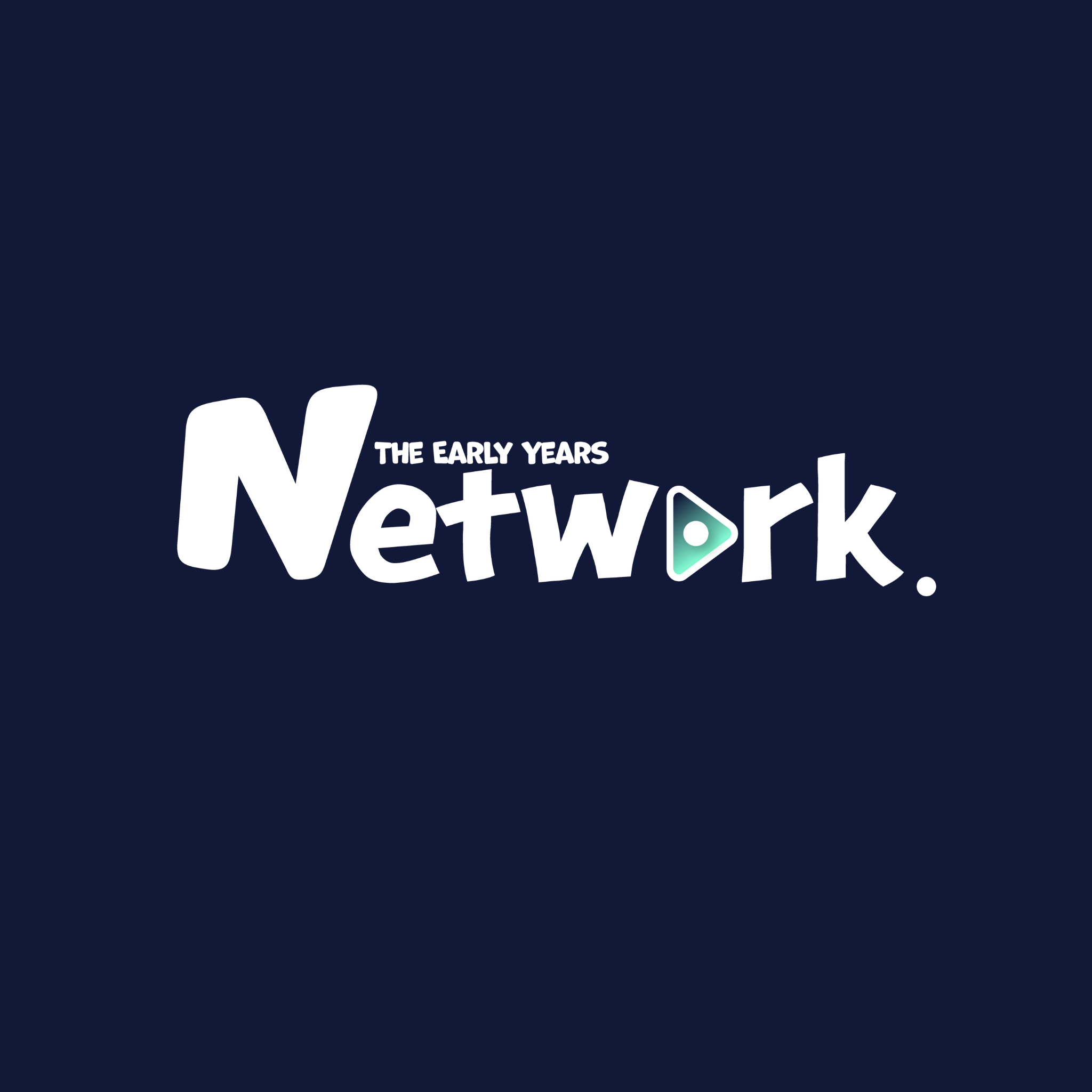
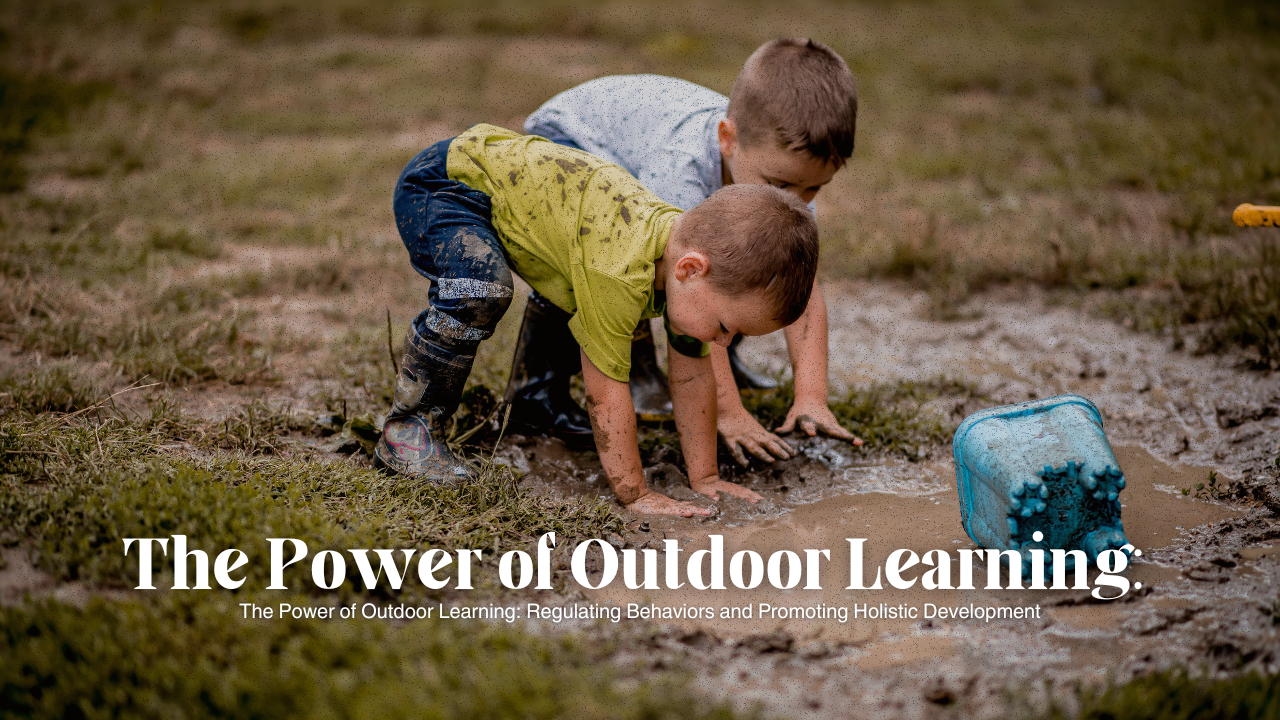
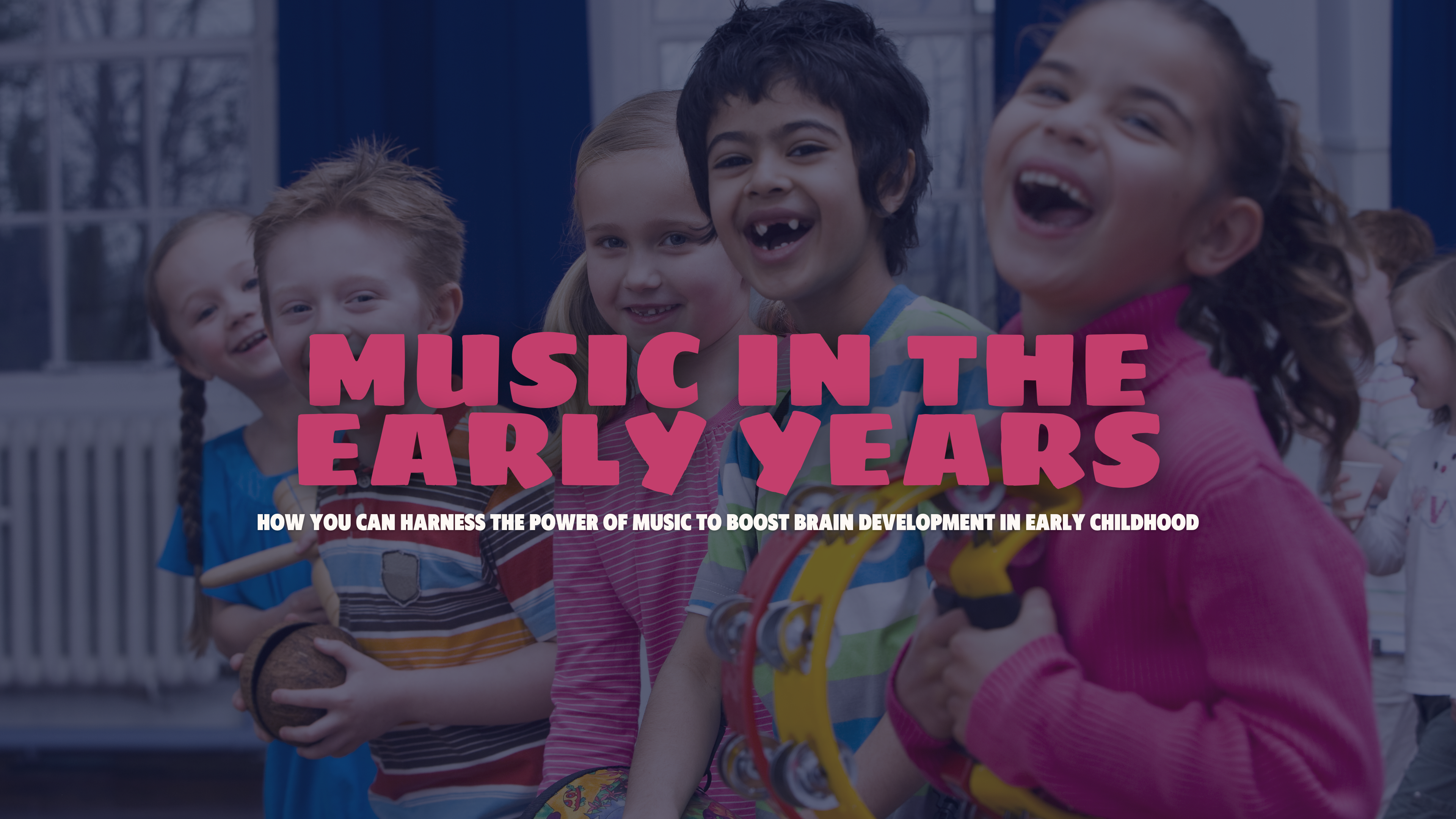
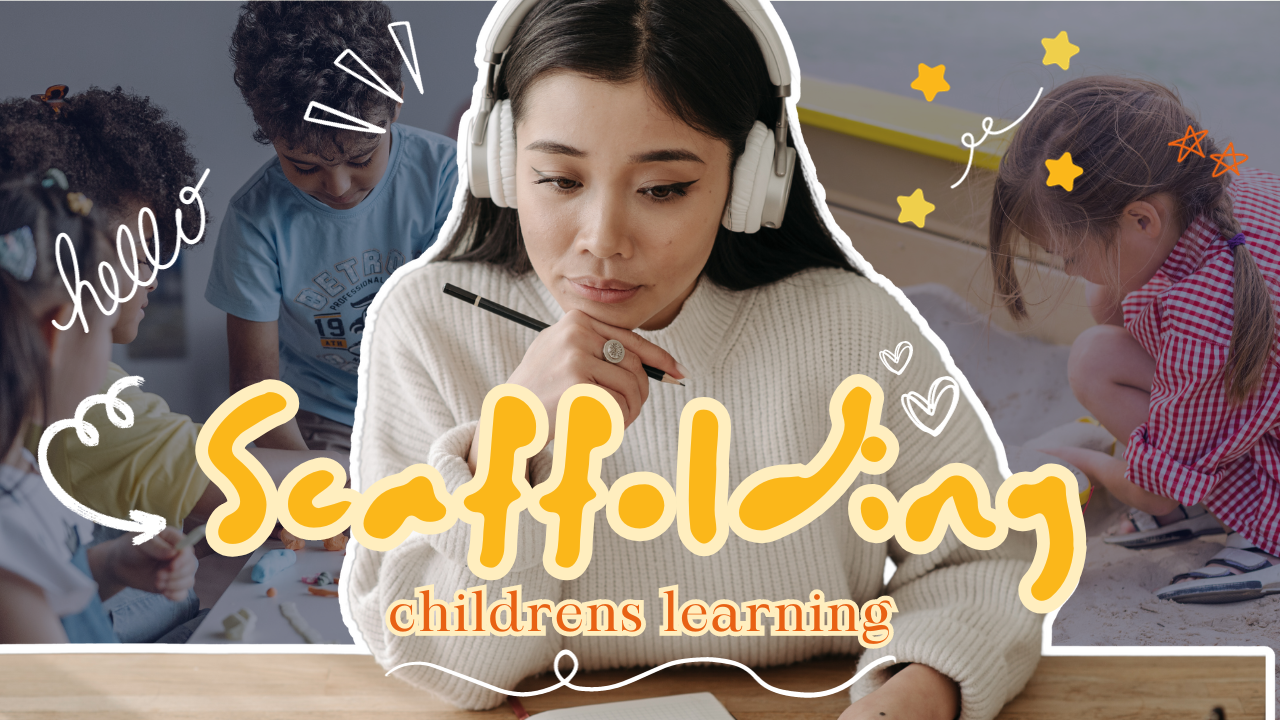
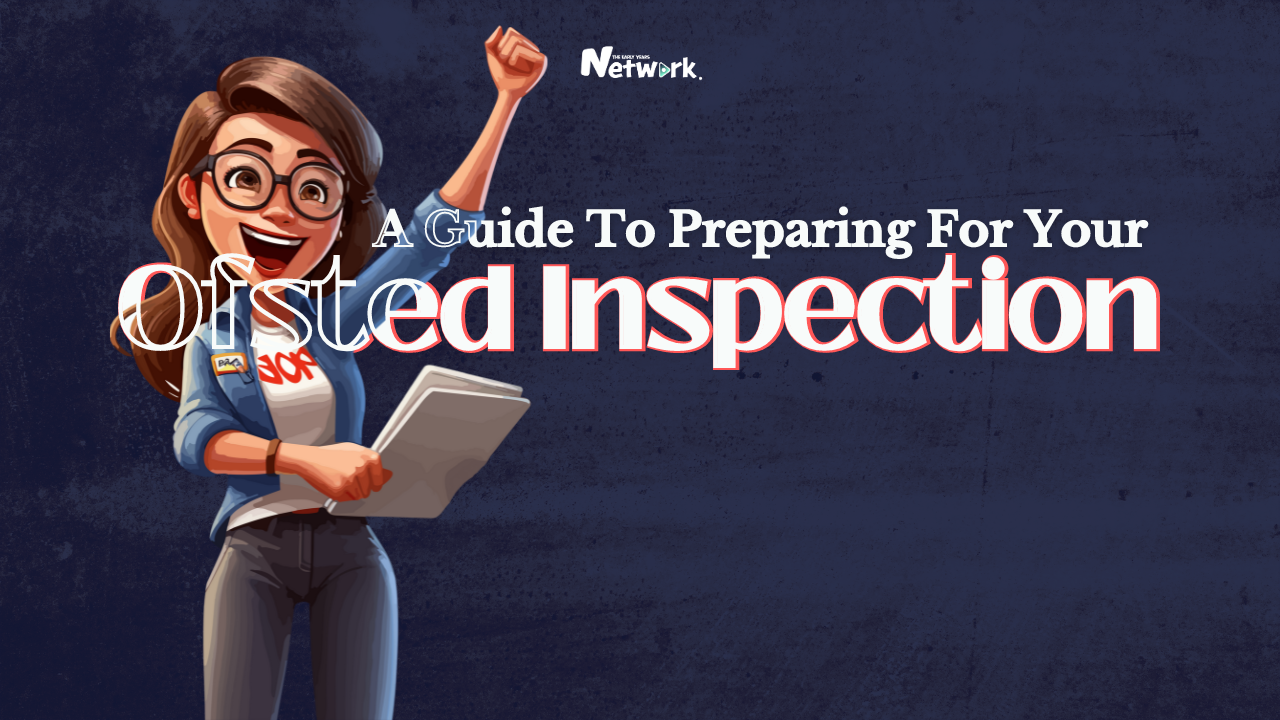
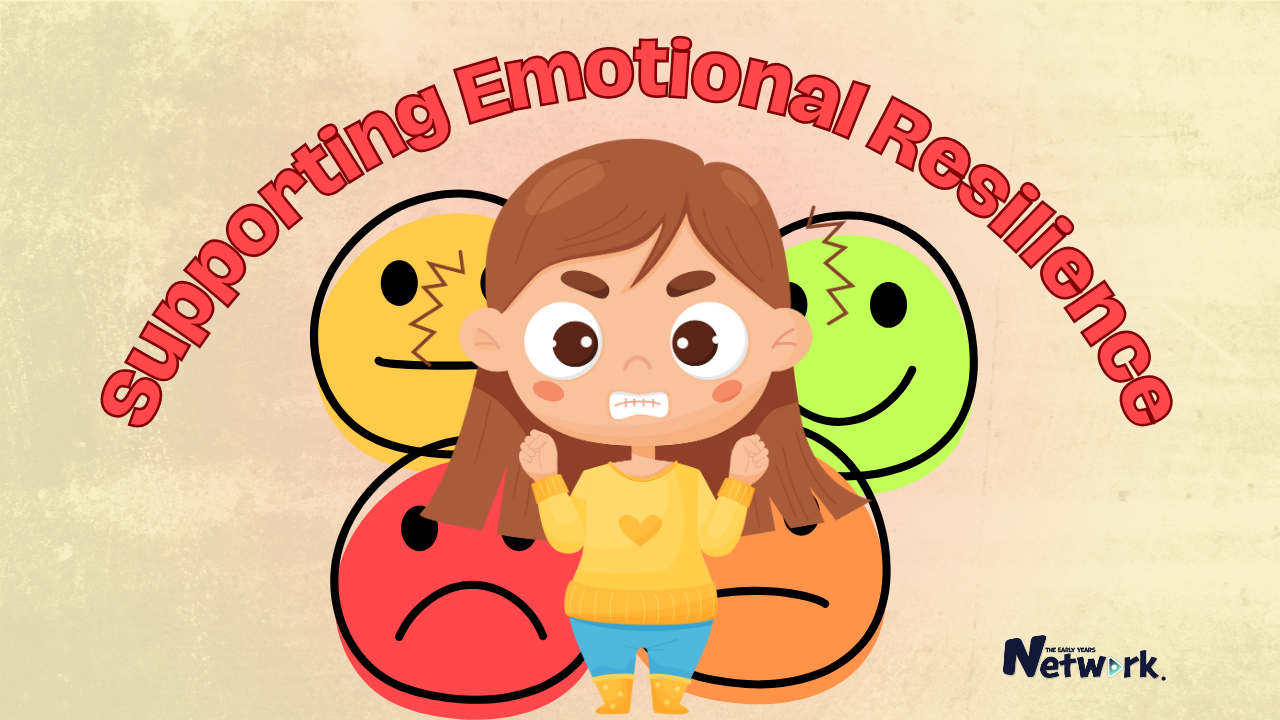

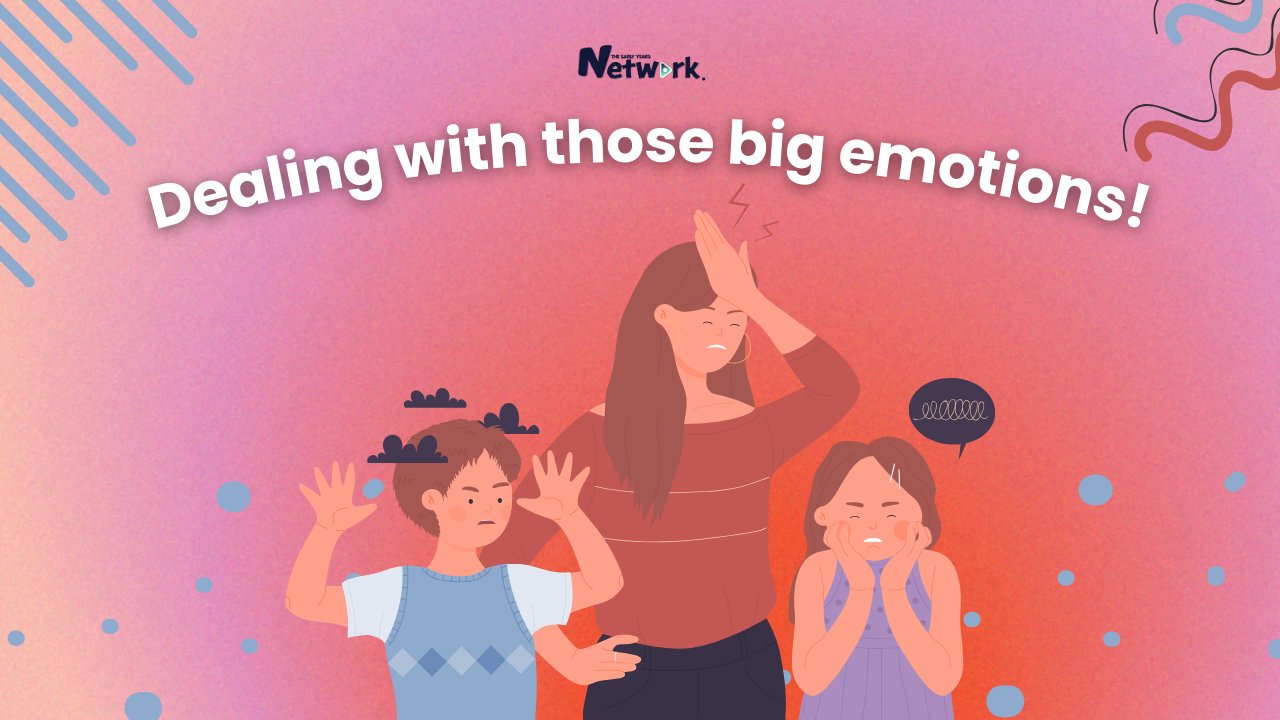
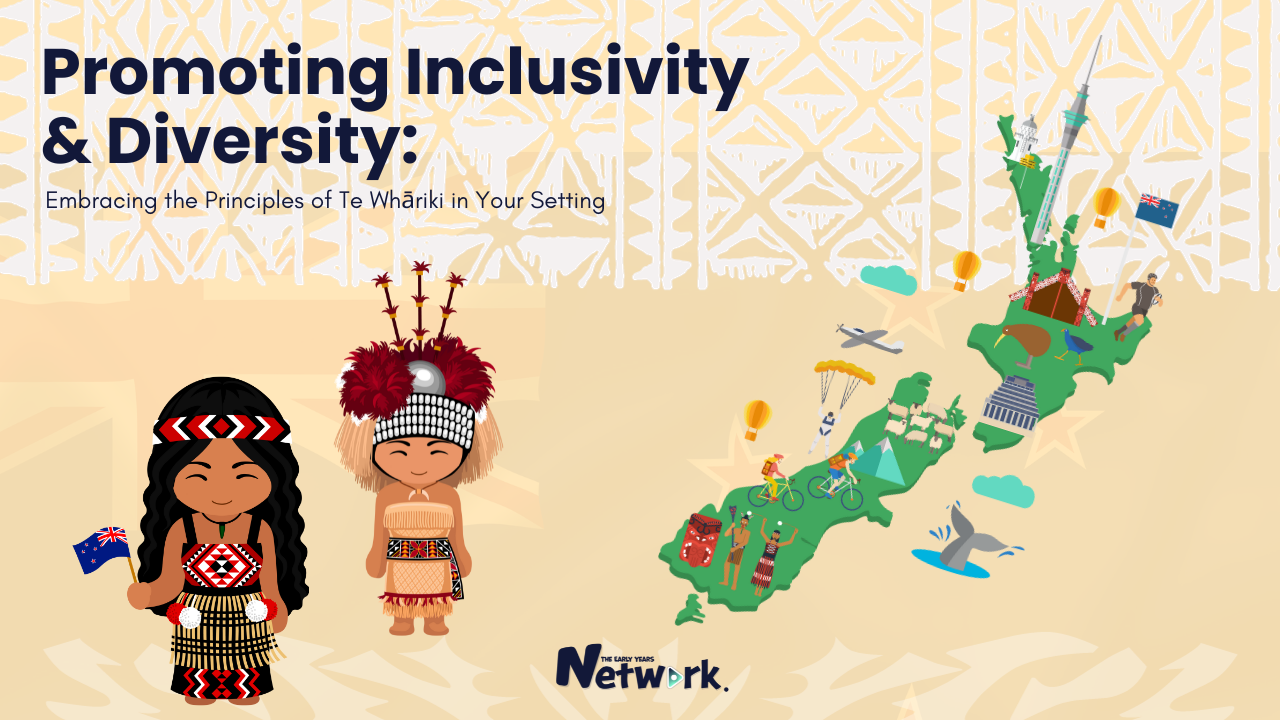

Comments 0
Leave a comment
Only your name will be published. Required fields are marked *